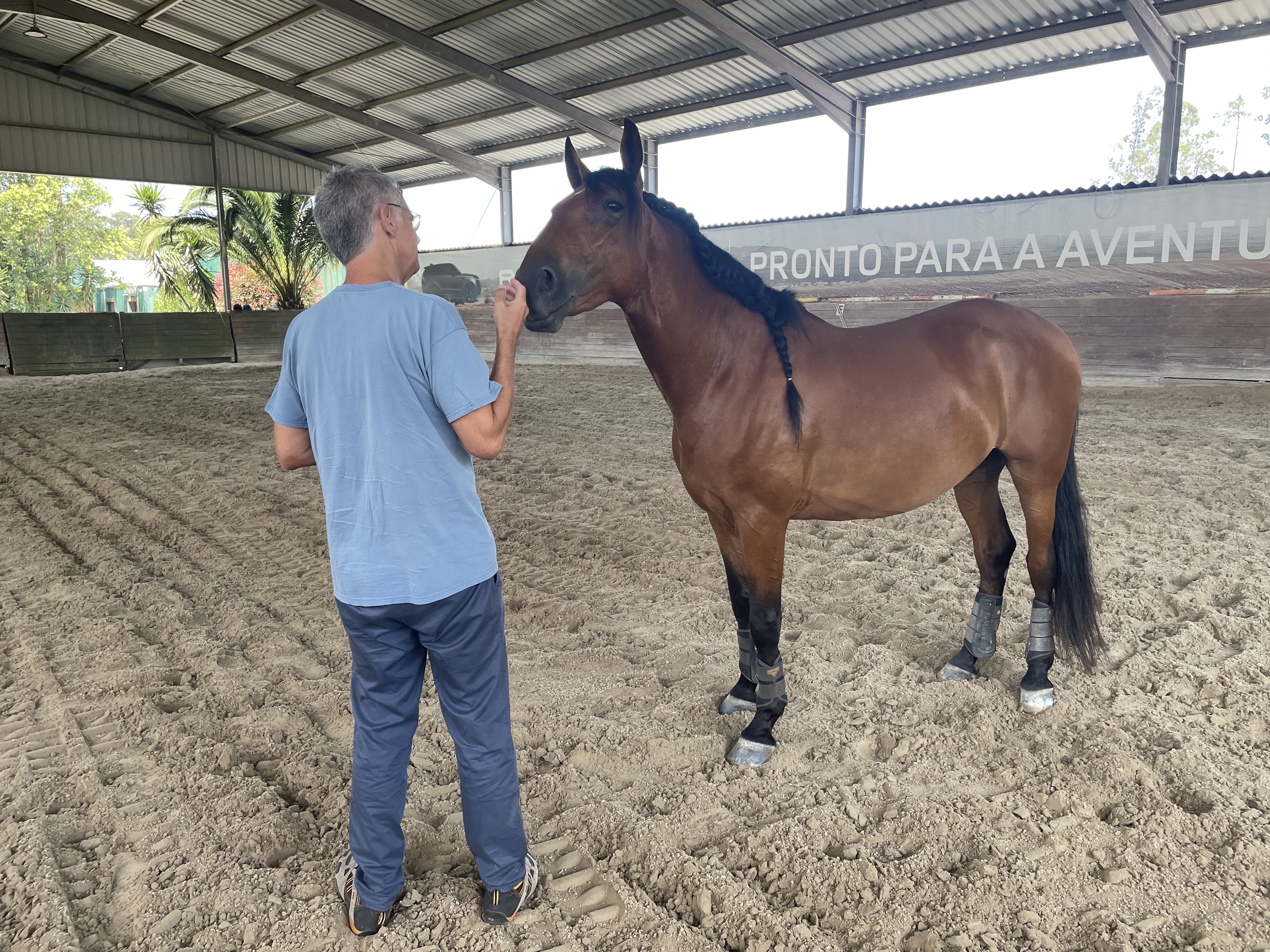What can horses teach you – that nobody else can?
Discovering leadership, connection, and authenticity through equine-assisted learning
In a world full of noise, roles, and expectations, horses offer something rare and powerful: real presence and connection. They don’t care about your job title, the clothes you wear, or how well you can deliver a presentation. They respond to how you show up – your energy, your intention, your ability to be congruent in body and mind.
That’s why equine-assisted learning (EAL) is such a radically different and effective experience for leaders, coaches, and anyone seeking personal development. It’s not a theory. It’s not a workshop full of slides, post-it notes, and flipcharts. It’s an experience that invites you back to the most human parts of yourself through the mirroring effect of a horse.
Why Horses?
Horses are emotionally intelligent herd animals. Their survival depends on reading subtle cues from others, which makes them incredibly attuned to our nonverbal communication and overall presence. They sense fear, doubt, confidence, and clarity as easily as you wash your teeth in the morning.
Horses give immediate, genuine feedback that is not filtered through politeness or social norms, offering a pure, unvarnished experience to see yourself as you truly are.
Unlike people, horses don't judge, label, or carry assumptions. They don’t overthink, just respond. That response can teach you more about your presence, leadership style, and connection with others than months of traditional training.
For instance, a mid-level manager struggling with micromanagement realised, after just one session, that her need for control was rooted in self-doubt, as she found that the horse wouldn’t follow her until she approached him differently. That insight ultimately reshaped her leadership style.
The Science Leading to the Stable
Emerging research on equine-assisted leadership shows that this kind of interaction enhances self-awareness, verbal and non verbal communication, emotional intelligence and relational trust. Another study published by MDPI (2023) found measurable increases in nonverbal communication skills, emotional regulation, and team collaboration through horse-human interaction.
In one programme with medical students, participants showed improved well-being and stress management after EAL sessions. Meanwhile, researchers at Purdue University reported a decrease in stress hormones and an improvement in emotional functioning through human-equine interactions.
In business terms, these learnings and experiences can be easily applied to various situations, with the added benefit of identifying root causes that influence issues related to conflict management, collaboration, communication, and effectiveness, among other areas.
How does this work?
This is not about horse riding. In our horse-assisted programmes, you are working with horses from the ground, connecting with them through guided exercises, where you can see how your presence affects these 600 kg animals. Their feedback is silent, but immediate and profoundly honest.
Meanwhile, a professional Master Certified Coach is with you or the team to facilitate self-reflection and harness learnings from the experience right on the spot.
You’ll gain a first-hand impression of what it means to lead with clarity, to build trust through action, to connect genuinely and to be fully present.
An additional element is that just like humans, every horse has a different character, which means they react differently to situations, presenting various learning opportunities for participants.
All situations with the horses can be translated into real-life issues, whether they occur in the workplace or in personal life. In one case, an IT team on the verge of burnout found renewed clarity and inspiration simply by observing how their communication patterns played out with horses.

"Having an experience with horses helped me see boundaries as a leader in a new light and identify patterns that I can now change. Truly powerful and memorable session that goes beyond typical coaching."
André Martinuzzi, Director, Institute for Managing Sustainability
When Traditional Learning Falls Short
In complex work environments, it's not just what you say that matters; it’s how you make people feel and how your intentions turn into impact. Research shows that leaders who evoke positive emotions enhance engagement, creativity, and retention. When a leader’s presence is grounded and aligned, work ethic and collaboration follow naturally.
A compelling 2023 empirical study demonstrated a very strong correlation between executive presence and employee engagement and found that presence could explain over 90% of the variance in engagement outcomes. In other words, how a leader is – not just what they know – sets the tone for what teams believe is possible.
As thought-leader Fia Fasbinder from the Moxie Institute reminds us that “executive presence isn’t about being the loudest voice in the room – it’s about having a presence that makes people want to listen.”
Who This Is For
This approach can have multiple benefits depending on your current challenges. Here are some examples where horse-assisted programmes can add value:
- Leaders seeking more authenticity, presence and meaningful connection
- Coaches who want to expand their skills and tools
- Teams face various challenges that affect their work, such as conflict management, collaboration, and communication
- Individuals at a crossroads in life or career
There are no two identical sessions when working with horses, since it depends on the specific challenges, team dynamics and the horses' here-and-now responses, making this a truly unique learning experience.
Ready to Experience It?
In our horse-assisted learning programmes, you can explore how your leadership, communication and boundaries come across through guided equine experiences. Join us for one of our upcoming sessions in Northern Portugal:
- The Power of Presence – a deep dive into how you show up, lead, and connect through the lens of personal presence.
- Creating Connections – a journey into trust-building, relational intelligence, and embodied leadership.
No previous horse experience is needed – only openness, curiosity, and a willingness to step beyond traditional learning.





